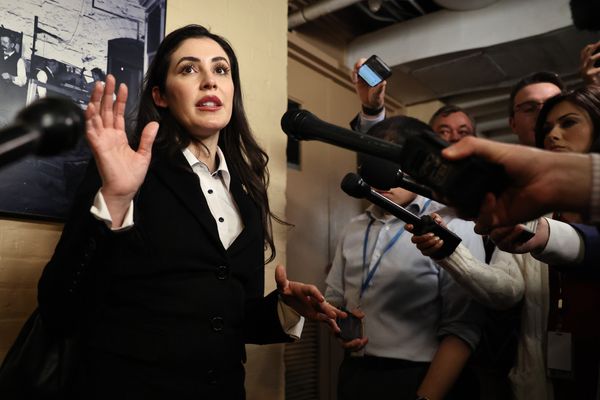In the lead-up to releasing his first album in two decades, Will Smith revealed the advice he received from the upper echelons of hip-hop. Speaking to radio station Sirius XM, he explained that Jay-Z told him to “be true to your story”, while Kendrick Lamar said, “Just say that s*** you always been f***ing scared to say.”
Sound advice. At his height as a rapper, Smith wasn’t exactly the hardest guy in the room. Instead, his skill lay in his breezy playfulness, his catchiness, even his family-friendliness (famously, he didn’t swear in his music). Paired with his exuberant pop-song-sampling production, often from his fellow Philadelphia native DJ Jazzy Jeff, Smith helped to commercialise hip-hop, even winning the first ever Grammy for Best Rap Performance.
There’s plenty of material to draw from, too. In his early acting career, Smith was adored as the Fresh Prince of Bel-Air, then, decades later, impressed with an Academy Award-winning performance in King Richard, about the father of the Williams sisters. But his 2022 Oscars win would become notorious instead for the moment he slapped Chris Rock over a joke about his wife Jada Pinkett-Smith’s shaved head, in front of a stunned Hollywood audience and viewers around the world. Smith swiftly became persona non grata in the entertainment industry, while his unconventional marriage remained the butt of endless jokes.
So Based on a True Story arrives teeming with possibility... could this be a raw and cathartic mask-off moment from the man who was once one of America’s most treasured (and bankable) performers?
Sadly not. With lyrics such as “Who the f*** Will Smith think he is?” over the odd hoedown electronica of opening track “Int. Barbershop – Day”, it’s clear that this is not about to be another Big Willie Style, and could offer a peek behind the persona. Deploying the setting of a Black barbershop, Jazzy Jeff and sketch comedian B Simone join Smith in a back and forth about all the scrutiny, gossip and turmoil Smith has endured.
Once you get over the groan-inducing opening phrase “Will Smith is cancelled”, there’s plentyto enjoy in the at once self-deprecating and incredibly braggy, cartoony track. He addresses his monumental work rate, his family life, the Oscars, echoes of the rumours and conversations around industry racism and respectability politics that were rife in the discourse back in 2022 (“‘I heard he won the Oscar but he had to give it back’/ ‘And you know they only made him do that s*** because he’s Black’”).

From then on, though, the album loses clarity – he mentions trauma (there’s a quite lovely track with Teyana Taylor about getting through hard times), but Smith doesn’t seem truly comfortable with self-interrogation beyond aphorism. There’s a throughline of faith and spirituality, with various “sermons” on overcoming internal adversity and slightly overwrought, Ye-adjacent gospel intermissions, all professing Smith’s devoutness not only to God but also to himself. “I believe in me like it’s religion, but I am the only one who converts/ Conversations with the congregation, the scripture is in the verse”, he offers on “Beautiful Scars”, with a delivery that is ultimately outshone by guest star Big Sean.
Smith is still a solid rapper, but this all feels more postured than what Jay and Kendrick were encouraging. Sure, there are intriguing little cracks through the veneer that imply he’s been on edge. He says the whole world’s against him on “Bulletproof”, and throws in the slightly strained suggestion that you can never tell if he’s bleeding on “Make It Look Easy”. But elsewhere on the same track, he opts for vague, hackneyed platitudes about failure and redemption (“Life throws punches, you got to roll with it”). It’s the sort of half-baked, corny line that crops up throughout the album: “The harder the fall, the higher you soar” on “You Can Make It”; “You do not have to be perfect to deserve love” on closing track “The Reverend (WOA Sermon)”.
Based on a True Story is part of a trio of albums Smith plans to drop this year; this “season” is titled “Rave In the Wasteland”. The track of the same title is preceded by an interlude wherein the “reverend” urges us to find joy and energy in facing down our internal darkness (the second season, incidentally, will be called “The Gift of Madness”).
It seems fair for Smith to want to exorcise the past few years, unpacking his perceived mistreatment by both the press and the public. It’s just a shame that he’s chosen to do it with quasi-inspirational songs that don’t bang. This was an opportunity for untethered rapping and bold experimentation that still exists within the bouncy freedom of Smith’s once-playful musical universe. Unfortunately, Based on a True Story just isn’t it.







